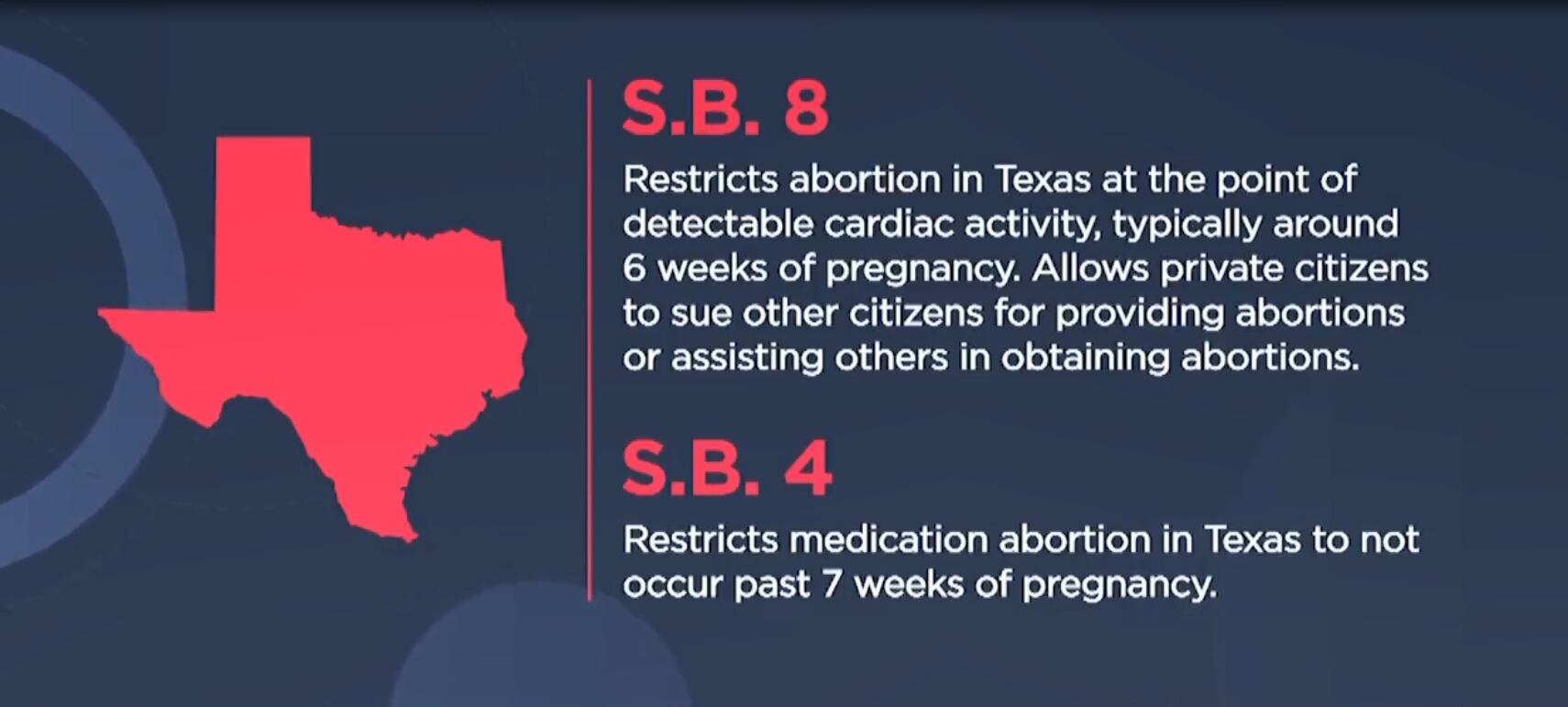Right across the Progreso International Bridge from Texas, the main street of Nuevo Progreso, Mexico rings with sights and sounds – a mix of Spanish and English, people promoting goods and services, and music drawing people towards the storefronts.
There are pharmacies everywhere. Filled with medicine that is only available with a doctor's visit and a prescription just across the border in the U.S., the farmacias serve another purpose – providing hope to women seeking abortion care.
"Some people don't know exactly what to get or where to get it, so that's a huge issue," said Zaena Zamora, executive director of Frontera Fund.
A grassroots network has arisen for people seeking misoprostol – one of the medications used for medical abortions. It is legal in Mexico for a stomach condition and, therefore, available if you know where to look.
It is hard to know how many people cross the border to obtain abortion care in either direction. Until recently, abortion was criminalized in Mexico, driving many women in the border region north for that care.
Now, there is an opposite problem. Mexico's Supreme Court decriminalized abortion at the same time the strictest abortion law in the United States went into effect in Texas.
"Mexico did just decriminalize abortion. That doesn't mean it is available here in Mexico," said Zamora. "There is no clinic in any of the border — or at least down here in the Rio Grande Valley, the border states — there are no clinics available here."
S.B. 8 – the Texas law banning abortion once a heartbeat is detected around six weeks – has changed everything for abortion advocates. S.B. 4, another Texas law targeting the procedure, bans medical abortions after seven weeks of pregnancy in the state. The laws have exposed systemic fractures in access to abortion.

"It's been very frustrating because there's people who are right past six weeks. We had a caller recently who is six weeks and a day, and she wasn't able to get her care, or especially here in the Valley, we have [local clinic] Whole Woman's Health, right? But we don't have any local providers, so providers are having to be flown into Texas to perform abortions," Zamora said.
The proximity of the border impacts so many parts of life on both sides, which affects the barriers many patients face when trying to get abortion care.
"Essentially what S.B. 8 is doing is giving undocumented people two choices – either you risk deportation or you are forced into parenthood," said Cathy Torres, organizing manager at Frontera Fund. "There's also something that's not talked about a lot is the language barriers. We hear S.B. 8, we hear it on every media outlet, it's accessible online [and] social media, great. But how are you going to ask someone that doesn't have access to internet and does not speak English to understand S.B. 8 when we speak English and we still don't even understand it sometimes?"
The new laws stretch the resources of Frontera Fund and other abortion funds in Texas that now have to look outside the state.
"A lot of the callers we're talking to now we're having to send out of Texas and the compounding costs of travel plus meals and providing money for them to actually get their abortion – it's much more money than we are used to spending," said Zamora. "For example, in 2020, we probably sent about eight people out of state the entire year. And in September [2021] alone we sent eight people out of state."
It is hard to have hope if you are an abortion advocate in Texas right now. Balancing on the knife-edge of constant court cases and political wrangling leaves patients in limbo. But, Frontera Fund is open and available to help, because the work continues.
"We've already been navigating a post-Roe world," said Torres. "Yeah, Roe v. Wade made abortion legal, made it the law of the land, but we like to say that Roe v. Wade is the floor in the abortion movement. So, yeah, abortion is legal — but it's not really if it is not accessible."
HyoJung Kim and Shawn Klein contributed to this story.
Check out more of our Abortion in America series:
Abortion Fight Plays Out in Ohio Cities



